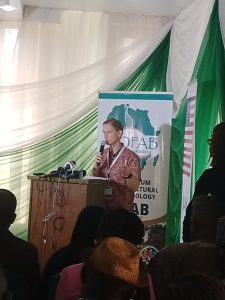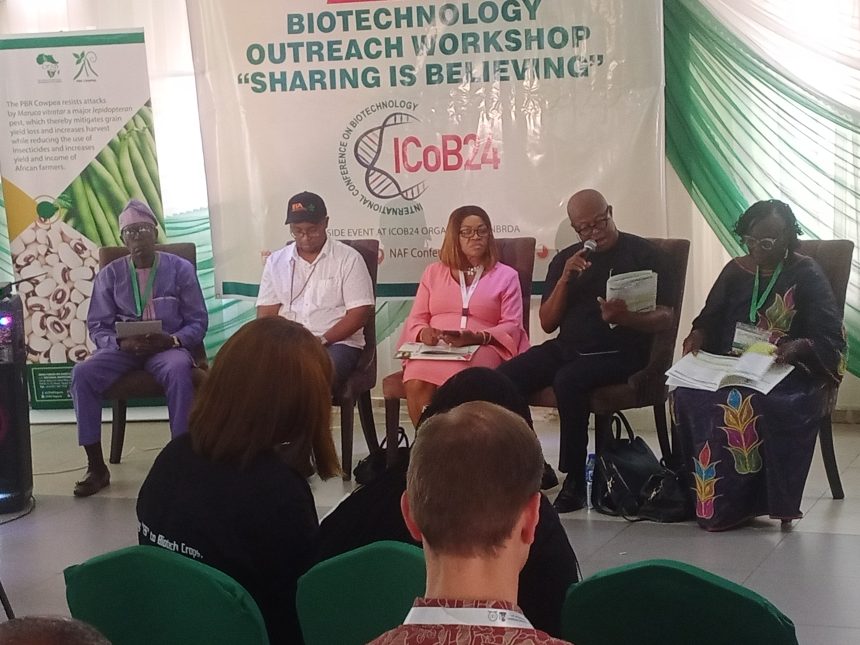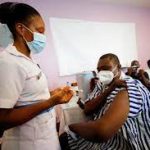‘5 Minutes Lies’ Making Science Toxic For Africa – Karembu
By Onche Odeh
The need to build public trust in Biotechnology was the focus on the fourth day of the International Conference on Biotechnology (ICOB24) holding in Nigeria’s capital, Abuja, with a unanimous call for scientists and other experts to step out of the box to debunk the myths and misconceptions being peddled about modern agricultural biotechnology by those who lack the scientific knowledge of the science.
They say scientists working in the field of biotechnology can do this by taking advantage of modern information technology tools to create or utilize existing networks and platforms to share credible information and knowledge on the subject.
The experts who shared their experiences in engaging with different groups during the Biotechnology Outreach Workshop, titled ‘Sharing is Believing’ organised by the Open Forum On Agricultural Biotechnology (OFAB) Nigeria Chapter, used the opportunity to explore ways that they could effectively communicate the science and outcomes of new and emerging technologies with particular emphasis on how to build the people’s trust in modern agricultural biotechnology by debunking the lies being circulated about Genetically Modified Organisms (GMOs).
Scientists must share experiences and knowledge on biotechnology. Everybody knows that there are GMOs. But everybody needs assurances about the safety, so the scientists must be ready and willing to continuously engage with the people, farmers and the public.
– Prof. Rebeccah Ndana, former Dean, Faculty of Science, University of Abuja
Speaking to the issues, Dr Margaret Karembu, Director, International Service for the Acquisition of Agri-biotech Applications (ISAAA) Africentre, said lies being circulated about science, especially genetically Modified Organisms (GMOs) is traveling way faster than the facts, a situation she said is reversing Africa’s progress towards becoming food sufficient and the region’s collective ability to utilize technology to transform the livelihood of the people using agriculture as the support base.
In her remarks during the side event which was supported by the United State Department of Agriculture (USDA), Karembu said, “It takes only five minutes to create a lie about science and only five seconds to get to travel worldwide,” adding that this has the ability to destroy the benefits that science and technology could offer towards making Africa food sufficient.
She said Africa can only achieve food self-sufficiency and agricultural transformation for improved livelihood with the adoption and application of the right science, which she said are available in the hands of Africans.
“When we allow lies destroy science, it delays decision making process and delays uptake of needed interventions that are dependent on science. This ends up creating distrust about science which is dangerous because science is the only tool that can transform Africa,” she added.
Continuing, Karembu said allowing lies about modern agricultural biotechnology to fester could only lead Africa to become a perpetual food import dependent continent to the benefit of those who are exporting from their countries.
Executive Director of the Africa Agricultural Technology Foundation (AATF), Dr. Canisius Kanangire in his remarks during the side event said, whereas there is the need for scientists to engage in researches with targeted outcomes, policy makers must work to provide the perfect environment for science to thrive for and in Africa.
People are more likely to trust biotechnology if they are made to see that it can improve their lives.
- Prof. Sylvia Uzochukwu, President, Biotechnology Society of Nigeria
He said, the bigger task is the need to change the narrative through aggressive communications by scientists and others in the support system.
“The fact is that people are hungry for information. Unfortunately the public often do not have the capacity to identify the lies from the truth. We need to become aggressive in communicating the facts about science,” Kanangire said.
“It has been proven that the products of modern agricultural biotechnology like the Genetically Modified Organisms (GMOs) are safe. It has also been proven that they are efficient and can transform the lives of the farmer. What is, however, needed now is for people to know these facts,” he also added while highlighting the need for more communication of the science of GMOs by the scientists, saying this would eventually build the needed trust among the public.

Agricultural counsellor at the United States Department of Agriculture, Foreign Agricultural Service, (USDA FAS), Chris Bielecki in his remarks stressed the need for knowledge and success story sharing on biotechnology, as he said this could ultimately lead to believing.
Beyond Genetic Modification, there is a need to communicate other aspects of the benefits of biotechnology, using messages that could be easily understood by the target audience
- Prof Olakoja, President Genetic Society of Nigeria
According to him, the successful development and eventual launch of Bt Cotton, PBR Cowpea, and TELA Maize by Nigerians are clear evidences of successful biotechnology applications, even as he said USDA would be willing to share further knowledge and information on modern agricultural biotechnology for the benefit of Nigeria and Africa.





